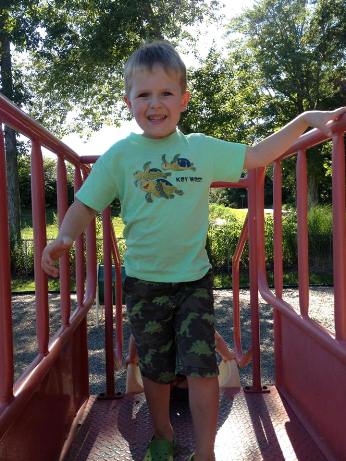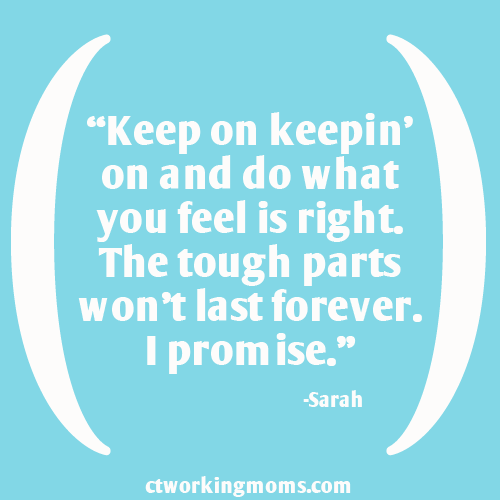I am a planner, scheduler, list-maker, and researcher by nature. I don't do well with uncertainty. During my first pregnancy, I read everything about baby care and motherhood that I could get my hands on. I was ready to do this. Really ready.
Then this guy was born:

Apparently he decided I'd become too smug in my "I'm so prepared to be a mother and I know exactly how to do this" readiness, and he swiftly took everything I thought I knew about babies and parenting and flipped it on its head.
He cried. And cried. And cried some more. He nursed around the clock. He slept in short spurts. He screamed a high-pitched panicked scream unlike anything I'd heard from other babies. He wanted to be held always. He would not accept anyone but me when he was upset.
I followed the advice of the many well-meaning friends and relatives who tried to help me. I charted his sleep and feeding for weeks, looking for patterns that I could develop into schedules, and finding none. I tried waiting to see if he'd settle himself at night. I slowly convinced myself that I was being manipulated by my child, that he would grow up to be an out of control monster if I didn't show him I was in charge somehow.
Then one day, in a rare moment when I escaped from the house alone, I found myself in the parenting section of the bookstore, and I came across a book that changed how I parented my difficult baby: The Fussy Baby Book by Dr. William Sears. In this book, which described what Dr. Sears dubbed "High-Need Babies" I read the following:
One of the most difficult mental adjustments for parents to make is overcoming the fear of "being manipulated" and "losing control." Once you make the switch in mind-set to believing that your baby is communicating her needs, not controlling your lives, thriving and surviving with a high-need baby will be much easier.
This was who he was. He needed a lot... of everything. And he continued to need a lot from me and from my husband through his toddler years. He was shy. Fussy. Slow to warm up. I often questioned myself and my parenting. Perhaps I should have tried harder to change him. I should have toed a firmer line. But, if you're reading this and seeing your own baby or toddler in this description, I'm here to tell you things are so much better on the other side.
You see, that baby is now this kid:

He's the kid who didn't want to talk to me on the phone when he was staying over at his grandparents house because he "had to get back to fishing." He's the kid who has a firm sense of who he is and what he needs, and he always has. He's a great communicator, and he has been since birth, but now that he can think things though and use words, this a good thing -- not a terribly frustrating thing. He feels genuinely sad when he sees people he cares about upset and often gives me homemade cards and bouquets of clover flowers from the lawn. He can happily play on his own for hours. He's the kid who tells me "It's probably best if you leave after you read me my books... you take up too much of my bed when you lay down with me and I can't sleep."
So, parents of high-need babies and toddlers: It gets better. Hang in there. It's a rough road, but it's a road that will eventually end in a happy place.
Here's a hug from me to you:
